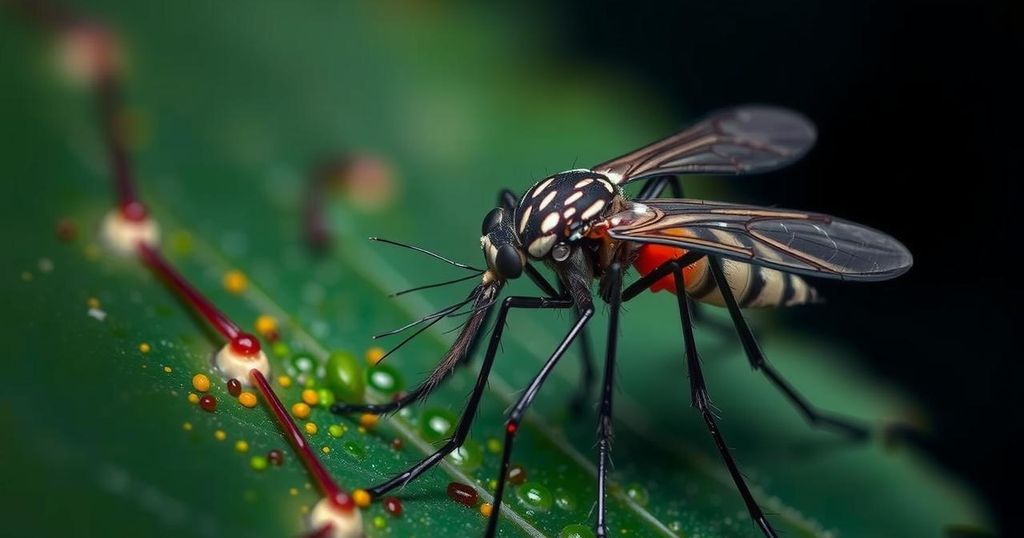The United Nations has cautioned about a spike in malaria cases in South Sudan due to recent severe flooding affecting 1.4 million people. The health system is under significant pressure as malaria cases rise, although vaccination efforts with the R21 malaria vaccine have begun. Malaria remains a leading cause of death among children, necessitating urgent actions to address this public health crisis.
The United Nations has issued a warning regarding a potential increase in malaria cases in South Sudan due to recent flooding, which has impacted approximately 1.4 million individuals, resulting in over 379,000 displaced persons amidst a backdrop of food insecurity. South Sudan is experiencing its most severe flooding in decades, particularly affecting the northern regions and the disputed Abyei area. The United Nations Office for the Coordination of Humanitarian Affairs (OCHA) has reported that 43 counties are dealing with the consequences of flooding, which has further strained the country’s already pressured health system by exacerbating malaria outbreaks in these flood-affected areas. Earlier this year, South Sudan, alongside Côte d’Ivoire, became one of the first nations to implement the R21/Matrix-M malaria vaccine, marking a significant advancement in the fight against malaria, particularly among vulnerable children. The Ministry of Health received more than 645,000 doses of the vaccine, distributing them in 28 counties identified as having the highest incidence of malaria. The World Health Organization (WHO) estimates that South Sudan records about 7,680 malaria cases and 18 related fatalities each day, underscoring the urgency of addressing this critical public health issue. Furthermore, malaria remains the leading cause of mortality among children in the nation, with 2.8 million cases and 6,680 deaths documented in 2022 alone. Healthcare professionals are hopeful that the introduction of the R21 malaria vaccine will significantly alter the current landscape of malaria-related morbidity and mortality. The government has historically allocated substantial resources toward procuring antimalarial drugs and testing kits. Moreover, the Malaria Consortium reported that in 2023, 85 percent of those at risk were protected using recommended preventive measures, specifically treated mosquito nets, which remain an essential defense against malaria.
South Sudan is facing substantial challenges due to climate-induced flooding that has led to a significant humanitarian crisis. This country’s vulnerability to climate change has resulted in widespread displacement and food insecurity, which aggravates public health issues, particularly malaria. Healthcare systems are under considerable strain as they cope with surging malaria cases at a time when vaccination efforts are being initiated. The R21 malaria vaccine represents a critical innovation in malaria prevention, but the existing high burden of the disease continues to pose serious risks, especially to children who are the most affected demographic in South Sudan.
In summary, the situation in South Sudan is dire, with ongoing flooding contributing to a potential rise in malaria cases and straining the local health system. The introduction of the R21 malaria vaccine is a positive development in the fight against this disease, yet significant challenges remain. Efforts to enhance public health through vaccination and preventive measures, such as the use of treated mosquito nets, will be vital in mitigating the impact of malaria in this vulnerable population.
Original Source: newscentral.africa






